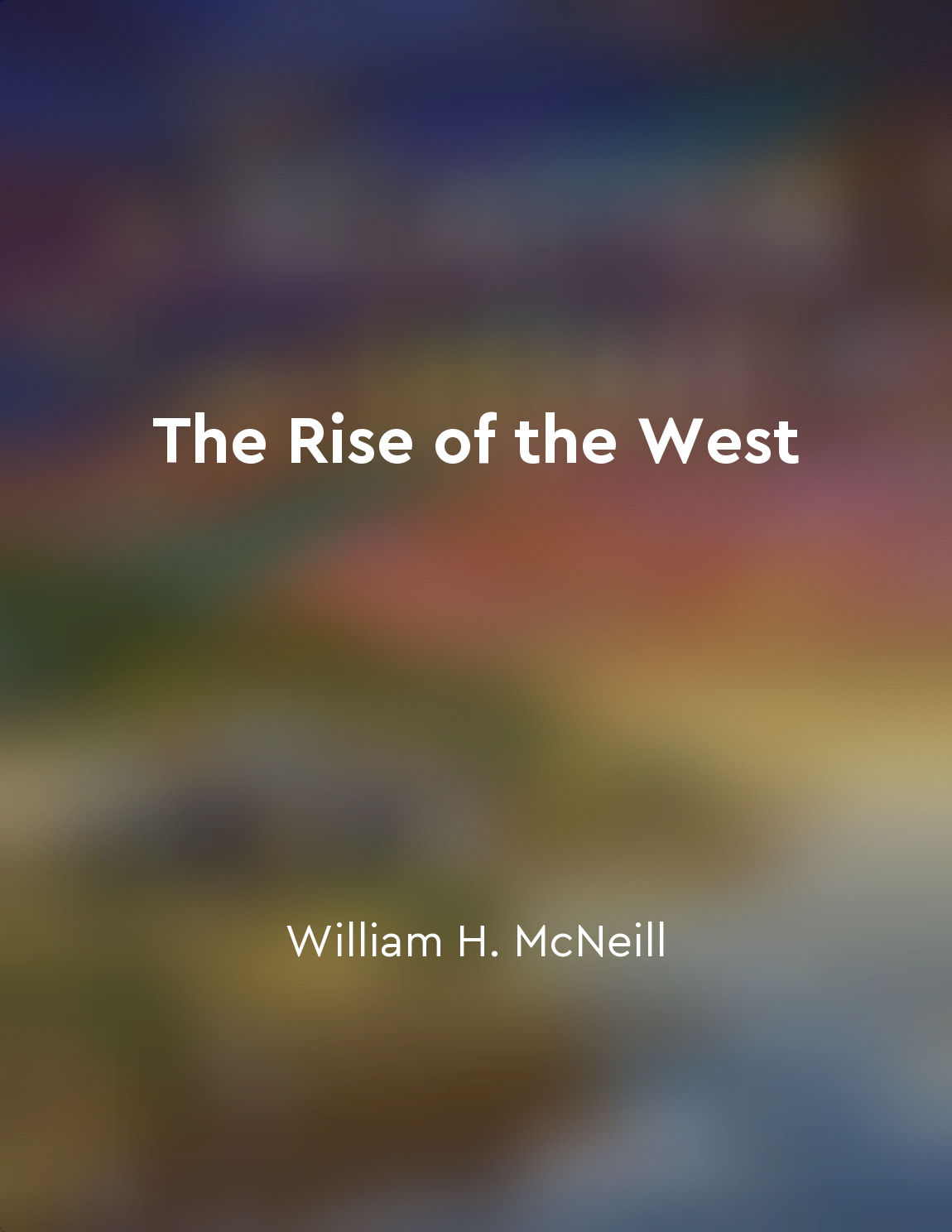The West's rise is influenced by geographic factors from "summary" of The Rise of the West by William H. McNeill
Geography has played a crucial role in shaping the rise of the West. The physical terrain of Europe, with its numerous peninsulas, islands, and navigable rivers, created a highly fragmented landscape. This fragmentation fostered competition among various political entities, leading to constant warfare and technological innovation. In contrast, the vast plains of China and the Middle East allowed for the development of expansive empires that were more centralized and stable. The presence of natural barriers, such as the Alps and the Pyrenees in Europe, provided protection and limited invasions. This allowed for the growth of diverse cultures and the exchange of ideas without the constant threat of external conquest. In contrast, the flat landscapes of China and the Middle East made them more susceptible to invasions and conquests, leading to the consolidation of power under centralized authority. The proximity of Europe to the Atlantic Ocean also played a significant role in its rise. The discovery of the New World and the establishment of trade routes with Asia brought immense wealth and resources to the European powers. This newfound wealth fueled the growth of industries and the development of advanced technologies, giving the West a significant advantage over other civilizations. In addition, Europe's temperate climate and fertile soil allowed for the spread of agriculture and the growth of population centers. This demographic advantage provided a steady supply of labor for industries and armies, further contributing to the West's rise. Conversely, the arid climates of China and the Middle East limited agricultural productivity and population growth, hindering their ability to compete with the West.- The geographic factors of Europe, including its fragmented terrain, natural barriers, proximity to the ocean, and favorable climate, have all played a crucial role in shaping the rise of the West. These factors have contributed to the development of a highly competitive and innovative society that has led to the eventual dominance of Western civilization.
Similar Posts

Economic volatility often leads to conflict
Niall Ferguson argues that throughout history, economic volatility has been a key factor in leading to conflict. When economies...
Agriculture allows for population growth
Agriculture was a game-changer for human societies. Before the development of agriculture, our ancestors were hunter-gatherers,...
The independence movements in South Asia paved the way for decolonization
The independence movements in South Asia were instrumental in setting the stage for decolonization in the region. These movemen...
The war shaped the course of history
The war was not just a short-lived event. It was a cataclysm that altered the trajectory of history. Its consequences were far-...
Contact between societies leads to exchange of ideas and technology
When different societies come into contact with one another, they inevitably exchange ideas and technologies. This exchange can...

Roman Empire expanded through conquest and assimilation
The Roman Empire was not built in a day, nor was it achieved through peaceful means. It expanded through a combination of conqu...


